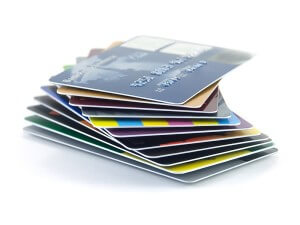Small-business owners who need quick access to capital have a growing industry eager to fund them: merchant cash advance providers. As of the result of the tighter credit environment following the recent economic recession, this decades-old industry has grown significantly in the past two years.
Cash advance providers offer businesses a lump sum payment in exchange for a share of future sales. Cash advances are typically used by retail, restaurant, and service companies with strong credit-card sales, but who aren’t able to qualify for secured loans because of credit problems, or a lack of collateral.
Facts about Merchant Cash Advances
Here’s the way the merchant cash advance works:
Companies take out a merchant cash advance, gaining access to money now, on the promise of providing a percentage of their future credit card income.
Typically, these advances aren’t structured with fixed payments, like a traditional secured business loan.
Instead, the lender collects a set percentage of the borrowing company’s daily credit card sales, continuing to receive funds until they recover whatever total fee was agreed upon in the initial contract.
Merchant cash advances don’t include an interest rate, because they’re not technically “loans”. Instead, the company making the advance collects what’s called a “premium” which is a percentage of the credit card sales from the company who receives the advance.
As an example, the company who offers an advance might structure a deal so that they’ll receive 30 cents for every dollar that the borrowing company makes until the advance is paid off, plus some set fee similar to an origination fee on a loan.
Benefits to merchant cash advances include that the amount paid back each month varies according to cash flow, which means borrowers pay back less of the money provided during slow months, and that collateral typically isn’t required to secure the advance, but there are downsides to this type of funding as well.
In particular, having an outstanding merchant cash advance is likely to prevent a business from being able to receive any form of a traditional loan, since it leaves a dark, looming shadow over their balance sheet, and makes traditional lenders wonder why the business has had to resort to a non-traditional form of lending in the first place.
Plus, there’s no firm date when the advance is to be paid back, nor are there fixed payments, so anyone attempting to do business with the company that took out a merchant cash advance may not be able to count on being paid back for providing them with resources, materials, inventory or other services.
Should You Get a Merchant Cash Advance?
Honestly, if you have assets that you can leverage, then you’d be better off using them as collateral to secure a short-term, low interest business loan. Before you rely on a merchant cash advance, make sure to at least consider the alternatives, including car or other vehicle title loans.
Vehicle title loans do require making interest payments, but they don’t include a premium like merchant cash advances, they won’t cloud your economic conditions in the same way that a merchant cash advance does, and they can provide just as much cash, if not more.
If you’re looking to raise money quickly, whether for personal or business reasons, then call us at Car Capital Financial today.
We’ve offered provided affordable car title loans to Southern California residents for over 15 years, we don’t require a credit check, and we can get you the money you need in as little as 30 minutes! Title loans are issued based on the borrower’s ability to repay the loan.
Call us now at 1-888-500-9887.